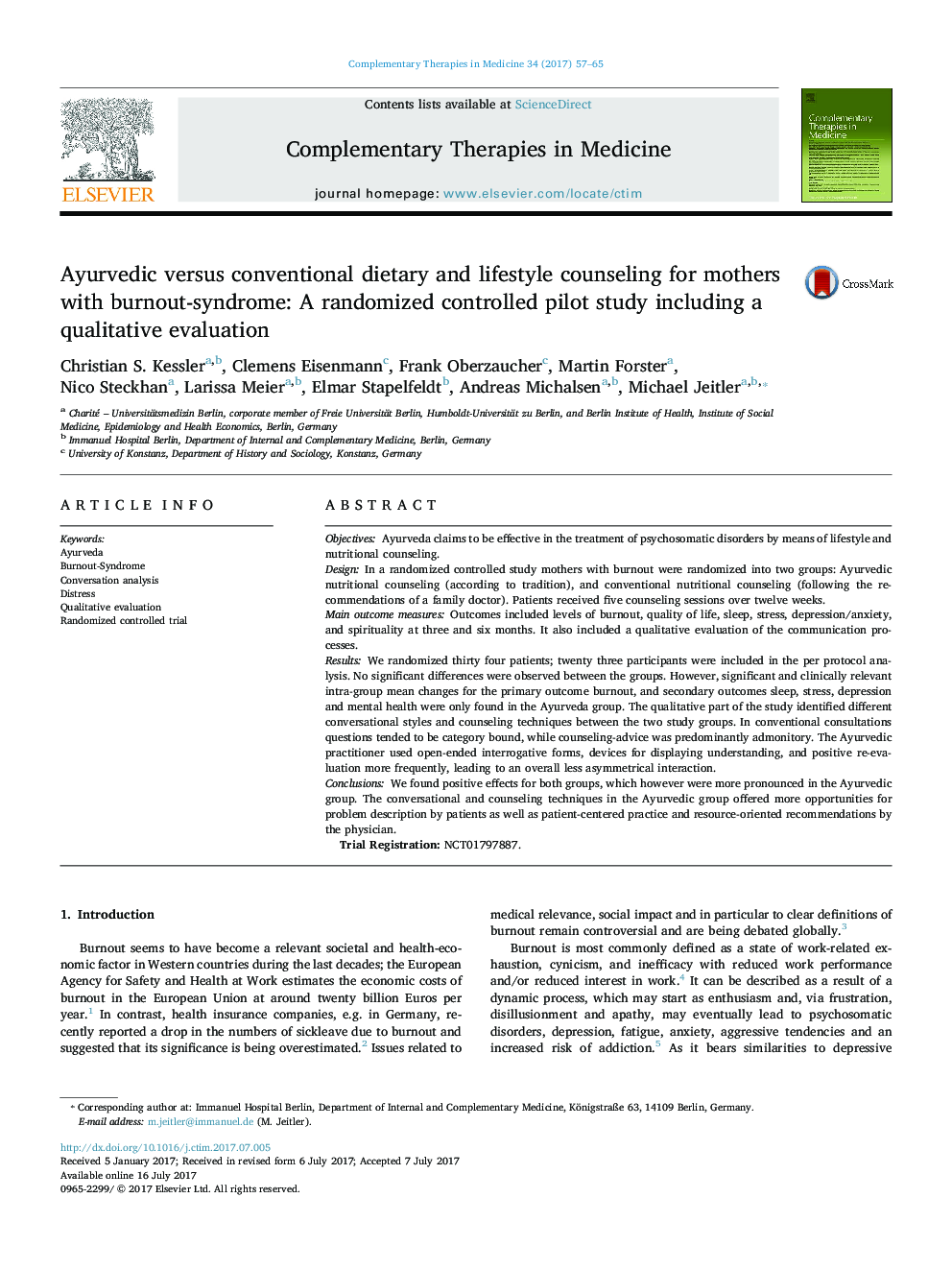| کد مقاله | کد نشریه | سال انتشار | مقاله انگلیسی | نسخه تمام متن |
|---|---|---|---|---|
| 5565186 | 1563200 | 2017 | 9 صفحه PDF | دانلود رایگان |
- Positive effects for both groups were found regarding burnout, quality of life, sleep, stress, depression and anxiety, more pronounced in the Ayurveda group.
- The qualitative part identified different conversational styles and counseling techniques.
- The Ayurvedic counseling techniques offered more patient-centered practice and resource-oriented recommendations.
ObjectivesAyurveda claims to be effective in the treatment of psychosomatic disorders by means of lifestyle and nutritional counseling.DesignIn a randomized controlled study mothers with burnout were randomized into two groups: Ayurvedic nutritional counseling (according to tradition), and conventional nutritional counseling (following the recommendations of a family doctor). Patients received five counseling sessions over twelve weeks.Main outcome measuresOutcomes included levels of burnout, quality of life, sleep, stress, depression/anxiety, and spirituality at three and six months. It also included a qualitative evaluation of the communication processes.ResultsWe randomized thirty four patients; twenty three participants were included in the per protocol analysis. No significant differences were observed between the groups. However, significant and clinically relevant intra-group mean changes for the primary outcome burnout, and secondary outcomes sleep, stress, depression and mental health were only found in the Ayurveda group. The qualitative part of the study identified different conversational styles and counseling techniques between the two study groups. In conventional consultations questions tended to be category bound, while counseling-advice was predominantly admonitory. The Ayurvedic practitioner used open-ended interrogative forms, devices for displaying understanding, and positive re-evaluation more frequently, leading to an overall less asymmetrical interaction.ConclusionsWe found positive effects for both groups, which however were more pronounced in the Ayurvedic group. The conversational and counseling techniques in the Ayurvedic group offered more opportunities for problem description by patients as well as patient-centered practice and resource-oriented recommendations by the physician.Trial Registration: NCT01797887.
Journal: Complementary Therapies in Medicine - Volume 34, October 2017, Pages 57-65
